 September 2003 in “Journal of the Royal Society of Medicine”
September 2003 in “Journal of the Royal Society of Medicine” Understanding breast cancer requires considering both medical advancements and social influences.

Doctors recommend postoperative radiation for male breast cancer, advise against testosterone for vasomotor symptoms post-adrenalectomy, suggest non-hormonal treatments for atrophic vaginitis after mastectomy, note no specific treatment for anticoagulant-induced hair loss, and call for more research on silicosis from silicon carbide exposure.
 August 2019 in “Journal of the American Academy of Dermatology”
August 2019 in “Journal of the American Academy of Dermatology” Ginseng and Albizia extracts help prevent hair thinning with age.
 53 citations,
October 2014 in “Free radical biology & medicine”
53 citations,
October 2014 in “Free radical biology & medicine” Defective mitochondrial DNA replication causes aging symptoms and increased oxidative damage in mice.
 August 2015 in “Free Radical Biology and Medicine”
August 2015 in “Free Radical Biology and Medicine” Some treatments can improve skin's defense against damage, but overuse may cause other skin problems.
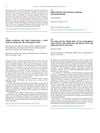 August 2015 in “Free Radical Biology and Medicine”
August 2015 in “Free Radical Biology and Medicine” The study suggests that higher levels of SIRT1 and SIRT2 may improve overall cell health and aging processes.
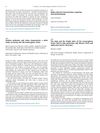 August 2015 in “Free Radical Biology and Medicine”
August 2015 in “Free Radical Biology and Medicine” Nrf2 helps protect skin from damage but too much can cause skin problems.
 August 2015 in “Free Radical Biology and Medicine”
August 2015 in “Free Radical Biology and Medicine” The document concludes that the discussed biological mechanisms and potential therapies are not related to hair loss or hair growth.
 14 citations,
January 2004 in “BJUI”
14 citations,
January 2004 in “BJUI” Finasteride can treat prostatic haematuria, but its use is controversial.
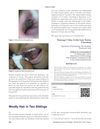 January 2012 in “International Journal of Trichology”
January 2012 in “International Journal of Trichology” Two siblings have a rare genetic condition causing curly, coarse hair.
 434 citations,
October 2003 in “PTR. Phytotherapy research/Phytotherapy research”
434 citations,
October 2003 in “PTR. Phytotherapy research/Phytotherapy research” Natural products in cosmetics are beneficial for skin and hair care with low toxicity.
 126 citations,
January 2001 in “World Journal of Surgery”
126 citations,
January 2001 in “World Journal of Surgery” Surgery is the main treatment for liver hydatidosis, but has risks; albendazole is the most effective drug but can have side effects.
 97 citations,
April 2016 in “Andrology”
97 citations,
April 2016 in “Andrology” Hormones and metabolism play a complex role in prostate enlargement, and more research is needed to improve diagnosis and treatment.
 38 citations,
January 2016 in “Cell Death and Disease”
38 citations,
January 2016 in “Cell Death and Disease” The TCL1 transgenic mouse model is useful for understanding human B-cell leukemia and testing new treatments.
 25 citations,
December 2008 in “The Journal of Urology”
25 citations,
December 2008 in “The Journal of Urology” Short-term finasteride treatment may lower some cell death factors in prostate cancer cells.
 10 citations,
August 2002 in “Sexualities”
10 citations,
August 2002 in “Sexualities” The critique suggests that Wilton's work unintentionally supports the very stereotypes it aims to question and calls for a broader, more inclusive approach to understanding gender.
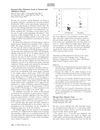 10 citations,
June 2001 in “Annals of neurology”
10 citations,
June 2001 in “Annals of neurology” Alzheimer's patients have higher levels of certain chemicals in their hair.
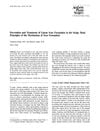 9 citations,
January 1995 in “Aesthetic Plastic Surgery”
9 citations,
January 1995 in “Aesthetic Plastic Surgery” New suturing technique with wider intervals and shallow stitches helps prevent scalp scars and promotes hair growth.
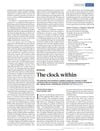 6 citations,
December 2011 in “Nature”
6 citations,
December 2011 in “Nature” The circadian clock in skin cells controls their growth and rest cycles.
 2 citations,
November 2022 in “Scientific reports”
2 citations,
November 2022 in “Scientific reports” Using gelatin sponges for deep skin wounds helps bone marrow cells repair tissue without scarring.
 1 citations,
January 2019 in “Springer eBooks”
1 citations,
January 2019 in “Springer eBooks” Hidradenitis Suppurativa is a chronic skin condition best treated early with surgery for better outcomes and less recurrence.
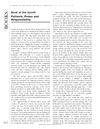 1 citations,
September 2003 in “Journal of the Royal Society of Medicine”
1 citations,
September 2003 in “Journal of the Royal Society of Medicine” The book is a detailed guide on hair and scalp diseases, useful for dermatopathologists.
 January 2024 in “Journal of applied biological chemistry”
January 2024 in “Journal of applied biological chemistry” Glehnia littoralis and Andrographis paniculata extracts can significantly boost hair growth.
 January 2017 in “Elsevier eBooks”
January 2017 in “Elsevier eBooks” Antioxidants may help improve mitochondrial health and could be used to treat diseases related to cell damage.
 January 2013 in “The Journal of Sexual Medicine”
January 2013 in “The Journal of Sexual Medicine” The document suggests that finasteride may cause depression and suicidal thoughts, while prostate surgery does not harm sexual health.
 October 2012 in “Humana Press eBooks”
October 2012 in “Humana Press eBooks” Grape seed extract is good for skin care, with antioxidant, anti-inflammatory, and anti-cancer effects.
 September 2003 in “Journal of the Royal Society of Medicine”
September 2003 in “Journal of the Royal Society of Medicine” The book has valuable information but is hard to read due to poor writing.
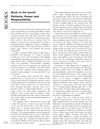 September 2003 in “Journal of the Royal Society of Medicine”
September 2003 in “Journal of the Royal Society of Medicine” Doctors should set boundaries and seek outside help for family medical issues.
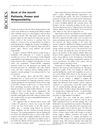 September 2003 in “Journal of the Royal Society of Medicine”
September 2003 in “Journal of the Royal Society of Medicine” The book is a useful reference for forensic medicine with some areas needing expansion for multicultural relevance.
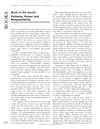 September 2003 in “Journal of the Royal Society of Medicine”
September 2003 in “Journal of the Royal Society of Medicine” Improving end-of-life care at home requires better coordination, communication, and support.






























